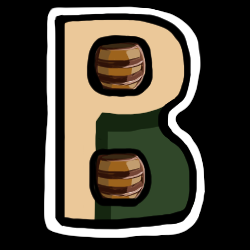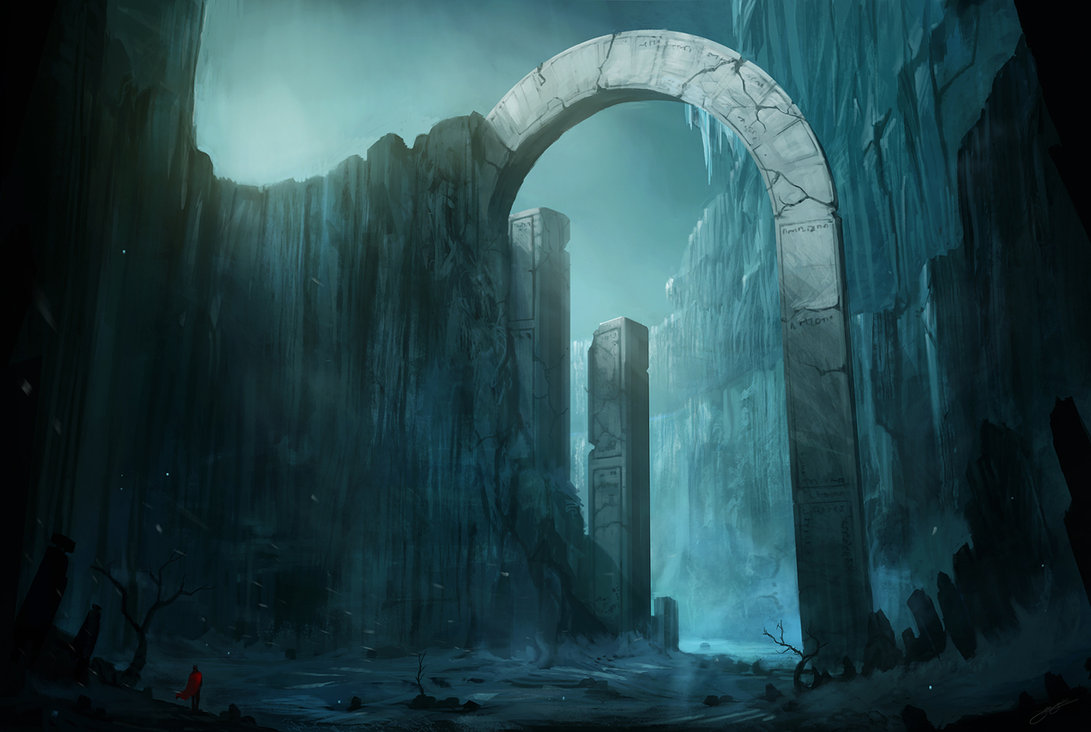The following lists the three paths that storytellers can take. Every storyteller strives to master all three, but some find it harder to do so than others. The variety of skills needed could prove too much for most.
Harmonics
Harmonic storytellers gain their abilities through meaningful sounds. These storytellers use music, either their own or from a personal playlist, to lull themselves into a meditative state, allowing them to bring forth their arcane effects.
This process requires only harmonic sounds. No lyrics are required in the songs. The only requirement is the song have personal meaning for the storyteller, and have some type of recognition. The local high school band's latest song won't work compared to Beethoven's Moonlight Sonata, for example, though if the band's song is more meaningful to the storyteller, it may just have enough power to be effective. Some storytellers choose to simply use metronome instead, a universal constant for sound. This music could be played by the storyteller or on a device in their environment.
Playlists: we all have songs that matter to us on a personal level. Music is a common form of entertainment. Each storyteller who understands harmonics builds a playlist, a set list, or any listing of songs that they use for their power.
By playing this song, they can radiate an aura that causes various effects depending on the song. These effects range from enhanced strength or thick skin, to heightened senses. The songs used can only be from a preferred genre.
Storytellers with the harmonics trait can pick a single preferred genre. They can have as many as they can find. Not all songs will resonate with them. A playlist can only have one song from an artist for every ten songs on the playlist. As a side note, if a Storyteller chooses to use harmonics, the song: Man in the Mirror by Michael Jackson will always appear within their playlist. If this song plays on shuffle, the mirror will manifest.
The Man In The Mirror
The storytellers actively seek each other and would go to the ends of the Earth to ensure that they find one another. This is due to the actions of a single storyteller who didn't understand or respect their power. A teenage boy, skilled in all three paths that storytellers can take, put together a horrible composition. He had no knowledge of the greater picture. He knew nothing of others with the same gift, and didn't know that the gift can be a danger. He gave birth to a place called The Mirror and the man who dwells within it haunts the dreams of every storyteller in the world.
No one knows how the boy did it. No one even knows what the composition was. He destroyed it almost immediately after its completion, but the damage was already done. The mirror is a strange place and yet it is not a place at all. The mirror is a twisted reflection. The mirror is not an alternate dimension nor is it some form of astral plane or domain. The mirror is somewhere in between, appearing and disappearing from existence, as it manifests and only doing so when there is something present to reflect. Within the mirror there are horrors beyond reason. No one has ventured there willingly, and those who are pulled into its maw never emerge again. At the center of these phenomena, stands The Man In The Mirror.
This thing, whatever it is, reflects the storyteller it haunts at that particular moment. It is an objection to their power. Many have called it a shadow self, the embodiment of all the horrifying deeds a storyteller is capable of. The name comes from the song played at the moment of the mirror's creation: Michael Jackson's, The Man in the Mirror. To this day playing this song causes the man in the mirror to appear. Storytellers attempted to bury the song, but no matter how hard they try, the song will always appear on their playlist at some point.
War pigs
The Man in the Mirror is always trying to break through, and doesn't need the song to do so. Storytellers can be lost in a song, gracing their allies with power when suddenly the song seems to skip a beat or the pitch raises and drops erratically. The song stretches and compresses into a series of uncomfortable sounds. This is the only warning a storyteller gets.
There are other songs that manifest The Mirror. One such song, Black Sabbath's War Pigs, will manifest one of the many horrors that lurk within the mirror. These creatures are each unique and horrifying, but it does not randomly appear on a playlist. The connection to the song and the creatures of the mirror led to their name. The creatures are referred to as War Pigs, and it's always a better option to flee than fight.
Safe Culture
Just as there are elements that can be substantially dangerous, there are some that are considered safe. The mirror cannot manifest when these cultural elements are used, and are often an effective way of escaping the mirror when it does manifest.
Works by Pink Floyd, Beethoven, and Led Zeppelin are a few examples, along with Ellie Goulding, Bring Me The Horizon, and Lana Del Rey.
I'll See You On The Dark Side Of The Moon
Learning harmonics gives access to a special ability. Storytellers who use harmonics gain the ability to travel to a lost city. This city is literally on the dark side of earth's moon, and can only be reached by storytellers who listen to a song off of Pink Floyd's Dark Side of the Moon. The moment the song is played and a meditative state is reached by the Storyteller they will be transported entirely to this strange place.
The city has gone by many names, and it's as old as the moon itself. Many Storytellers refer to it as The Great Library, Lost Carcosa, or The Tauran Hall. The city is built from black stones. The architecture is varied, each building seemingly coming from a different era of human history, and some having no human origin whatsoever. Within its black halls are mountains of books written on stone, parchment, leaves, and stranger materials. The entire city is one massive library.
The storytellers have long since been collecting culture and using the city as a vault, although the city was being used as such long before humanity came to be. The storytellers have found a wealth of information buried within, locked away as if purposefully kept from prying eyes. No one knows who built it, or why books continue to fill it shelves as there is no signs of life in the city. Storytellers routinely place their favorite works along its shelves only to find that what they have placed has been properly categorized and alphabetized somewhere else in the library when they return.
Mechanics
Anytime a song from the Dark Side of the Moon plays on shuffle, the Storyteller has three options.
- They can lose themselves in the song, teleporting themselves and their allies to The Great Library where they may explore their surroundings until the end of the song. When the song ends the Storyteller chooses a location they have previously been to teleport back.
- They can choose to resist the pull of a library, successfully making a TR:10 composure roll, and will not only remain in their current environment, but will also exist in a state that is between the two locations. This gives them and their allies plus 3 defense for the remainder of the song or until the end of the encounter.
- They can spend three skill points to change the song, doubling the following song's effects.
Characters must have at least one song from the album on their playlist when they gain access to this ability and can add 1 more for every 10 songs.
Visual
The visual path is one of the hardest to walk. The amount of practice required to learn how to produce stunning visual works of art, regardless of medium, can be difficult to sustain. Artists of all kinds I know precisely how to get each of the thousand words a picture can tell. Photographers can stun enemies, and not only with a flash of their camera. By taking a picture, the victim will truly believe their soul is being pulled from their body. A painter can work their magic on a canvas, depicting the bloody battle taking place before them. The only problem is they fail to include depictions of the enemies that are being fought, causing them to simply cease to exist.
The path also grants benefits in one's immediate environment rather than their depictions of it. Storytellers that tread the visual path understand the importance of symmetry and proportion. They understand what is pictured is often not as important as what is not. They can take advantage of this fact, weaponizing their failed career as a magician, artist, or sculptor. Those who walk the visual do not necessarily create art, but many of them also perform and become art. Magicians, mimes, actors, and any other former can find a home on the visual path.
Negative spaces
Storytellers who wander the visual path have a keen understanding of the world. They take note of where their attention is drawn but are far more focused on what it is drawn away from. This sixth-sense Sense allows them to take advantage of what they refer to as negative spaces.
A negative space is nothing more than a pocket created in the three-dimensional space of one's environment. These pockets can be shaped and molded into whatever size they need to be. When something is placed within or Storyteller steps inside of these pockets they literally disappear.
While within the negative space, whatever is inside cannot be interacted with or perceived in any way. It is a finite space that cannot be escaped unless one knows how. Those who tread the visual path make great use of this strange phenomena.
Photographic memory
Storytellers on the visual path pay close attention to detail. They develop a perfect photographic memory, which can help them in many ways. It can also be a detriment, as they forget nothing. There are things in The Web that are best forgotten, and storytellers who walk the visual path are immune to
Psychic Surgery as well as the effects of
Bliss. This means that whatever horrors they experience are permanent
Divine proportions
Those who walk the visual path have an eye for symmetry. They have remarkable finesse, steady hands, and can perform feats of dexterity with alarming speed. This is not the extent of the ability, however. Storytellers use this in conjunction with photographic memory to move between spaces. An artist can draw a perfect representation of a place they have been and can enter a negative space to teleport to that location with ease.
Security Feed Analysis// Subject: The Mirror, Man In-
Focused Commentary/Continued:
--------Addendum- insert Subject: War Pigs------
The creature referred to as a War Pig was a hulking heap of the muscle. It's arms were extended and thick, ending with 3 fingers tipped with black nails. The head was impossible to identify from the footage, but there appeared to be a series of other appendages. These appendages appeared to be tendrils, a third arm, and two legs. With the footage, we are unable to determine if a War pig is bipedal. It makes no sound. This for me is the most striking feature. The creatures we study have many shrieks and howls. This creature, however, is dead silent even when making the kill. The creature attacks, taking Amelia's body out of view with little more than a whimper.
Josh and Chuck scream. The creature quickly turns to Josh, who is desperately trying to stop the music from playing, even going so far as to remove the battery from the phone. This has no effect. The creature goes in for the kill. Chuck looks down at his creation, the collage of words on the floor. He jumps up, looks around with heavy breathing. He tries to turn and scramble down the hallway while the war pig is occupied. Screams echoed down the hall, stopping his retreat. The horrific wailing of the cultists dying by unknown hands. Josh died soon after, ripped apart in center frame. The creature takes its time removing each limb with a careful precision.
-----Aside/ why wasn't it as quick as it was with Amelia? Why did it intend to inflict pain on him?-----
Chuck backs up, glances down at the cutouts again, and behind him the drawn door opens.
There's a blinding flash of white light that fills the room. The war backs away from Charles. All that remains before the footage is Chuck screaming at whatever stepped through the threshold. The new message forged from the cutouts on the floor were displayed in full view. . 'Hello Charles!'
The camera cuts out immediately, fading to black but the audio remains. Chuck died. The process seemed painful.
End Focused Commentary/ End Analysis/ Subject: The Mirror, Man In-
Conclusion: NULL<Need More Data>
— Commentary from The University Archives









These seem to be an interesting bunch. I like the idea of a cursed mirror created by accident, especially since it haunts more than the creator.
I think this needs some rewriting, feels like a few words get minced here. I'll not point out any more, as this seems like it needs a general grammar/spelling pass (Written in a hurry?). Conlangs for power is a cool idea, could see people using that to minmax for sure. Why Crown Royal bags? Is there a specific property they hold? Removing enemies by "forgetting" to paint them? Love the thought! They sound interesting to play for sure, and were fun to read!Yeahhhh, I thought I ffixed alot of these. Dangit. Thanks for pointing it out. The dark side of the moon is my favorite bit XD I really wanted to shake it up with these guys, so I'm glad they sound fun. Lots of options for minmax as well. Thanks so much for the time, like, and comment!
oh crap, the crown royal bags. well.... youve heard of it. everyone has. Crown royal bags are notorious for storing random bits in, at least here. change, small odds and ends, and the like. With the storytellers, imagery and symbolism mean everything. sometimes just where you store your lexicon can increase its power!
I had to google what Crown Royal even was when I read that lol.
Ohhhh dear. XD maybe its just Oklahoma? Weird. we love the crown bags.